Two days after longstanding ruler Bashar al-Assad was overthrown by rebels in a rapid attack, Syria’s new interim prime minister, Mohammad al-Bashir, declared Tuesday that the country needed “stability and calm.”
According to a statement, Bashir was chosen by the rebels to serve as the interim leader of the nation until March 1.
In his first interview since taking office, Bashir told Qatar’s Al Jazeera television, “It’s time for these people to enjoy stability and calm.”
As an Islamist-led opposition coalition overran Syria’s capital, Damascus, over the weekend, ending five decades of violent control by his dynasty, Assad left the country.
According to a senior official, the deposed Syrian leader is currently in Moscow, as reported by US channel NBC.
The Islamist leader in charge of the rebel offensive, Abu Mohammed al-Jolani, had earlier declared that he would seek former high-ranking officials who were involved in war crimes and torture as well as negotiate a handover of power.
In an attempt to calm concerns about Syria’s future governance, he told British network Sky News on Tuesday that the nation was “exhausted” by conflict and would not be returning to it.
“We will rebuild Syria.” The nation is making progress toward rehabilitation and prosperity. It is moving in the direction of stability,” he stated.
“The battle has worn people out. Therefore, the nation is not prepared for another one and will not engage in one more.
Despite its efforts to soften its image, his group, Hayat Tahrir al-Sham, has its roots in Syria’s Al-Qaeda branch and is banned as a terrorist organization by many Western governments.
For repatriation, 350 Pakistanis were airlifted to Lebanon.
The Associated Press of Pakistan said Tuesday that over 350 Pakistani citizens, including 245 pilgrims who were stuck in Syria, had crossed the Syria-Lebanon border so far in order to return safely.
According to a Foreign Office press release cited by APP, the repatriation procedure was made easier by Pakistan’s embassy in Damascus.
The Pakistani nationals were met in Lebanon by his equivalent in Beirut, Nawab Adil, after being escorted to the border by Deputy Head of Mission Umar Hayat.
The federal cabinet was notified earlier Tuesday that 79 of the 250 Pakistani pilgrims in Syria had arrived in Beirut and would be returned to Pakistan. In order to arrange the return of “about 500-600 Pakistanis” from Syria via Beirut, Prime Minister Shehbaz Sharif claimed to have discussed the matter with Prime Minister Najib Mikati of Lebanon.
“Unity and inclusivity”
The United States will eventually recognize a government that satisfies these requirements, according to US Secretary of State Antony Blinken, who urged other countries to support an “inclusive” democratic process in Syria.
According to Blinken, Syria’s future administration ought to be “credible, inclusive, and non-sectarian.”
The incoming government must “uphold clear commitments to fully respect the rights of minorities” and permit humanitarian help to flow, according to Blinken, who outlined US priorities.
He went on to say that the US wants the future administration to “avoid Syria being used as a base for terrorism.”
The extremist Islamic State group (IS) is still active in Syria, despite losing all of its territory.
As government troops retreated across the wide Syrian desert, IS jihadists captured them and killed 54 of them, according to the Syrian Observatory for Human Rights war monitor.
According to the UN envoy for Syria, the organizations that drove Assad from power need to turn their “good messages” into practical measures on the ground.
According to Geir Pedersen, “they have been sending messages of unity, of inclusivity.” In the days and weeks ahead of us, he continued, “We don’t need to see… that this is not followed up in practice.”
Kaja Kallas, the head of EU foreign policy, issued a warning about the dangers of a return to extremism and sectarian bloodshed.
“We have to make sure that the terrible events that occurred in Iraq, Libya, and Afghanistan don’t happen again,” she stated.
500,000 people were killed in Syria’s nearly 14-year civil conflict, which also prompted half of the country to evacuate its homes, with millions more people seeking safety abroad.
Thousands are missing.
Families of the tens of thousands of victims detained in the jails and detention facilities run by Assad’s security forces are searching frantically since his downfall.
The rebels freed thousands of prisoners as they moved closer to Damascus, but many more are still unaccounted for.
In a last-ditch effort to free prisoners, Syria’s White Helmet rescuers urged Russia on Tuesday to exert pressure on Assad to produce lists of detainees and maps of covert prisons.

According to AFP correspondents, a sizable crowd gathered Monday outside Saydnaya jail, which is known for the worst crimes committed under Assad’s administration, in an attempt to find family members, many of whom had been held captive for years.
My brother has been missing since 2013, and I’m trying to find him. We’ve searched all over for him, and we believe he’s in Saydnaya,” Umm Walid, 52, stated.
The streets of Damascus were crowded with released convicts, many of whom were malnourished, debilitated by disease, and scarred from torture.
According to the United Nations (UN), Assad and his lieutenants must be held accountable by whoever came to power in Syria.
Because they will now have access to “the crime scene,” UN investigators who have been compiling evidence of heinous crimes for years referred to Assad’s overthrow as a “game-changer.”
“We will not hesitate to hold accountable the criminals, murderers, security, and army officers involved in torturing the Syrian people,” Jolani, who now goes by his true name, Ahmed al-Sharaa, declared on Tuesday.
Attacks
The Israeli military claimed to have carried out hundreds of strikes on Syria in the last two days, when Syrians were celebrating the overthrow of Assad.
The UN special envoy, Pedersen, urged Israel to stop. “Israeli movements and bombardments inside Syrian territory are still occurring. “This must end,” he declared.
However, if the new Syrian government lets “Iran re-establish itself in Syria, or permits the transfer of Iranian weapons or any other weapons to Hezbollah,” Israeli Prime Minister Benjamin Netanyahu has threatened to respond “forcefully.”
Meanwhile, Syria’s future leaders should “take a firm stand against Israeli occupation while preventing foreign interference in its affairs,” according to Hezbollah in Lebanon.
Israeli strikes have “destroyed the most important military sites in Syria,” according to the Britain-based Observatory.
According to the monitor, the strikes targeted a research center, naval vessels, and weapons stockpiles that Western nations believed had connections to the manufacture of chemical weapons.
Additionally, Israel—which shares a border with Syria—sent troops into the UN-patrolled buffer zone east of the Golan Heights, which Israel has annexed. Israeli forces were occupying seven locations in the buffer zone, the UN official in New York told AFP late Tuesday.
After the UN claimed that Israel was breaking the 1974 armistice, Israel’s ally, the United States, declared that the incursion had to be “temporary.”
The IDF has been directed to “establish a sterile defense zone free of weapons and terrorist threats in southern Syria, without a permanent Israeli presence,” according to the Israeli defense minister.
According to the Observatory, fighting has also persisted in the country’s north, where clashes between Kurdish-led and Turkish-backed troops have claimed 218 lives in the past three days.



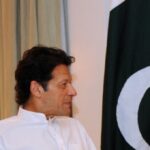
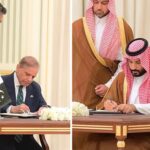


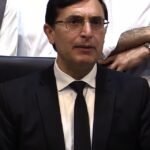
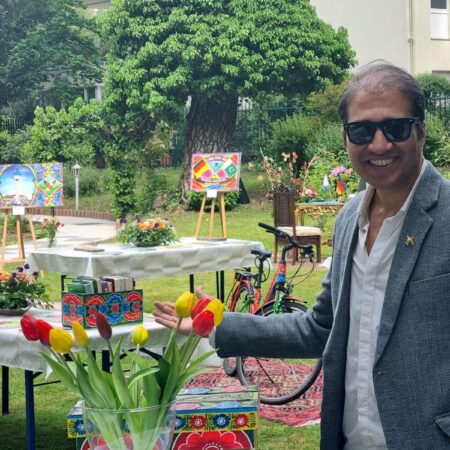
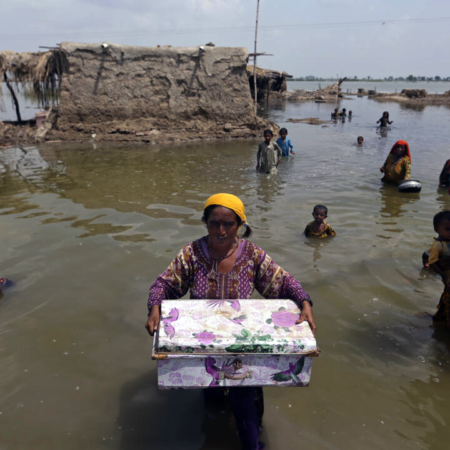


No Comment! Be the first one.